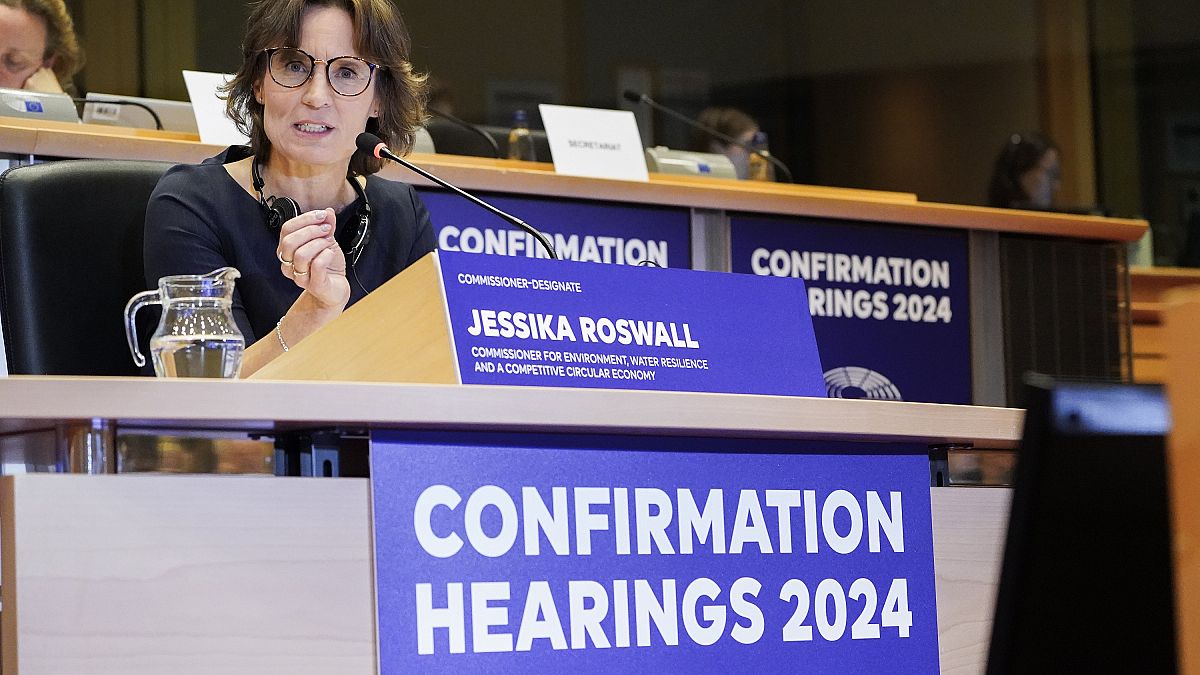The recent hearings for key European energy and environment commissioner roles saw Danish candidate Dan Jørgensen securing the energy portfolio, while the fate of Sweden’s candidate, Jessika Roswall, remains uncertain. Jørgensen impressed during his hearing, emphasizing the importance of nuclear power as part of the European energy mix while also committing to higher renewable energy targets. He discussed support for small modular reactors and highlighted the need to reduce Europe’s dependence on Russian energy supplies. Jørgensen’s plans include an electrification action plan and an affordable housing strategy, which received approval from various political groups.
On the other hand, Roswall faced a more challenging hearing as the environment commissioner designate, with mixed reactions from MEPs. She expressed her commitment to implementing key environmental legislation under the European Green Deal, despite previous disagreements within her political group. Roswall discussed banning ‘forever chemicals’ PFAS from consumer goods but was vague about the timeline. Her plans for revising the REACH Regulation and promoting circular economy goals were also highlighted. Despite some skepticism, Roswall convinced her political family of her suitability for the role.
While some MEPs voiced support for Roswall, others criticized her performance, calling for a new candidate from the Swedish government. The decision on her approval was postponed, with only certain groups expressing willingness to vote her through. The possibility of further questions or rejection still looms, which could delay the final European Parliament vote on the new Commission. The fate of Roswall as the environment commissioner is still uncertain and could impact the installation of a new EU executive in December.
Overall, the hearings for the European energy and environment commissioner roles highlighted key priorities in the energy and environmental sectors. Jørgensen’s focus on nuclear power, renewable energy targets, and reducing dependence on Russian energy supplies resonated with various political groups. His plans for an electrification action plan and affordable housing strategy received positive feedback. Meanwhile, Roswall’s commitment to implementing environmental legislation under the European Green Deal faced scrutiny, with mixed reactions from MEPs.
Both candidates discussed important environmental issues such as PFAS restrictions, REACH Regulation revisions, and circular economy goals. Jørgensen’s strong performance and clear commitments contrasted with Roswall’s more uncertain responses and repeated references to nature credits. Despite efforts to convince MEPs of her suitability for the role, Roswell faced criticism from some groups, calling for a new candidate to be put forward by the Swedish government. The decision on her approval was postponed, with only certain groups expressing willingness to support her candidacy.
In conclusion, the hearings for the European energy and environment commissioner roles shed light on the different approaches and priorities of the candidates. Jørgensen’s focus on energy diversification and affordability, along with his promise of an electrification action plan, received approval from various political groups. On the other hand, Roswell’s commitment to implementing environmental legislation under the European Green Deal faced challenges, leading to calls for a new candidate. The decision on her approval remains pending and could have implications for the installation of a new EU executive.










